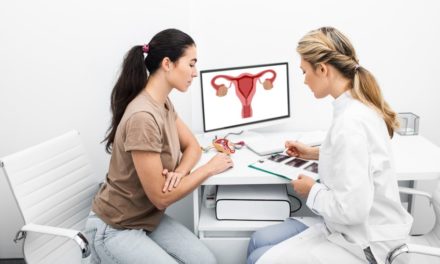Embracing Change
Introduction
Menopause is a biological process that marks the end of a woman’s reproductive years. It is a significant life transition that comes with hormonal fluctuations and various physical and emotional changes. In this article, we will explore the menopausal changes that women may experience, the impact on overall health and well-being, and the available treatment options to help manage the symptoms. By providing insights into this transformative phase, we aim to support and empower women to embrace menopause with confidence and grace.
Understanding Menopause
Menopause is defined as the absence of menstruation for 12 consecutive months. It typically occurs in women between the ages of 45 and 55, but the age of onset can vary. During menopause, the ovaries gradually produce fewer hormones, particularly estrogen and progesterone, leading to the cessation of ovulation and menstrual cycles.
Common Menopausal Changes
- Hot Flashes and Night Sweats: Hot flashes are sudden sensations of heat that can cause sweating and discomfort, often occurring during the night as night sweats.
- Vaginal Changes: Reduced estrogen levels can lead to vaginal dryness, itching, and discomfort during intercourse.
- Mood Swings and Emotional Changes: Hormonal fluctuations may cause mood swings, irritability, anxiety, or feelings of sadness.
- Sleep Disturbances: Menopausal changes can disrupt sleep patterns, leading to insomnia or restless nights.
- Bone Health: Reduced estrogen levels can contribute to decreased bone density, increasing the risk of osteoporosis.
Impact on Overall Health
Menopausal changes are a natural part of aging, but they can affect a woman’s overall health and quality of life. It is essential to prioritize self-care and seek support during this phase.
Seeking Professional Help
If menopausal symptoms significantly impact daily life, it is advisable to consult a healthcare provider. A comprehensive evaluation will help determine the appropriate treatment plan.
Treatment Options for Menopausal Changes
- Hormone Replacement Therapy (HRT): HRT involves taking hormones (estrogen and/or progesterone) to alleviate menopausal symptoms and maintain bone health. It can be administered in various forms, including pills, patches, creams, or gels.
- Non-Hormonal Medications: Certain medications, such as selective serotonin reuptake inhibitors (SSRIs) or serotonin-norepinephrine reuptake inhibitors (SNRIs), may help manage hot flashes and mood swings.
- Vaginal Estrogen: For vaginal dryness and discomfort, low-dose vaginal estrogen in the form of creams, tablets, or rings can be effective.
- Lifestyle Changes: Regular exercise, a balanced diet, stress reduction techniques, and getting enough sleep can significantly improve menopausal symptoms.
Embracing Menopause with Positivity
Menopause marks a new chapter in a woman’s life, free from concerns about pregnancy. It can be an opportunity to focus on personal growth, well-being, and embracing changes with positivity.
Conclusion
Menopause is a natural phase that every woman will experience in her life. Understanding the menopausal changes and their impact on health and well-being is essential in navigating this transformative journey with grace and self-compassion. By seeking support from healthcare providers and exploring the available treatment options, women can effectively manage menopausal symptoms and lead fulfilling lives beyond their reproductive years. Let us celebrate this new chapter, cherish the wisdom gained through experience, and empower women to embrace menopause as a unique and beautiful phase of life.










